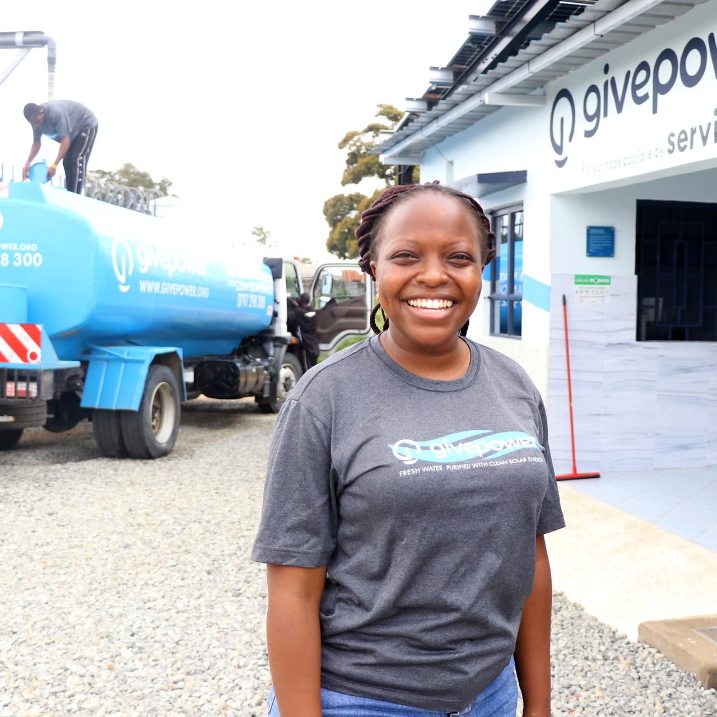A social enterprise project in Mishomoroni has demonstrated the ability to purify saline water for domestic use, including drinking.
Farhiya Hussein | Dec. 14, 2023 | Nation Media Group
- A social enterprise project in Kisauni has demonstrated the ability to purify saline water for domestic use, including drinking, without relying on costly electricity charges.
- The organization uses solar power to purify water and sells a 20-liter jerrycan of clean, purified water for Sh20.
Since the advent of devolution, leaders in Mombasa have been toying with the idea of purifying seawater for domestic use.
The plan was set in motion during the previous regime under former governor Hassan Joho, and in 2018, the county assembly approved plans to desalinate seawater to address the city’s acute water shortage.
To date, the Sh16 billion dream has yet to be realized due to several challenges, the main one being that it requires a large financial investment to operate. This is evident in other coastal cities around the world that rely on desalination technologies for their clean water, such as Dubai.
Residents of the coastal region have been struggling with a shortage of clean water for years, forcing them to face the constant frustration of dry taps.
Most residents have resorted to buying water from vendors who capitalize on the scarcity and make significant profits, while others rely on untreated borehole water.
Hamud Ali, a resident who moved to the city from Mariakani, said that water only flowed from his tap for the first week after he moved into his apartment in 2021.
“I had to pay Sh6,000 for water before I moved in. Little did I know that I was paying for a service that I would not receive,” lamented Mr. Ali.
Currently, he has to buy water at between Sh30 and Sh50 depending on availability, but like many other residents, he is concerned about the source of this water. Most of the time, it is borehole water that is not safe to drink.
Vincent Owino echoed similar challenges, saying, “We have been buying water from vendors who charge as much as Sh50 for a jerry can. It has been a constant struggle to get clean and sufficient water for our daily needs.
Mombasa receives a daily supply of 33,000 cubic meters of water from neighboring counties, well below its demand of 220,000 cubic meters. Water vendors rarely disclose their water sources.
With residents still hoping for a lasting solution to the problem, an innovative solution has been initiated in one of the many informal settlements.
A social enterprise project in Mishomoroni, Kisauni Constituency, has demonstrated the ability to purify saline water for domestic use, including drinking, without relying on costly electricity charges.
The organization, known as GivePower, uses solar power to purify water. A 20-liter jerrycan of clean, purified water is sold here for Sh20.
“We want to counter the prevailing water cartels and provide the community with an affordable commodity. We also prioritize hiring local people,” said Ruthie Ndung’u, Community Engagement and Marketing Manager.
The Mishomoroni site has six fresh water tanks, each holding 10,000 liters, and two raw water tanks.
“We have two types of sites, the Mac sites, which serve a large population, and the Mobi sites, which are a bit more remote and produce 15,000 liters a day,” says Ms. Ndung’u.
But how does it work?
The water from the borehole is filtered through the three-micron filters and then goes through the reversal stage before being transferred to the tanks.
This process is used to check the chlorine levels to ensure that the water is of high quality before it is delivered to customers.
The water goes through two types of tests before it is delivered. The private one, which is their in-house assessment, and the government testing.
“We have walk-in customers who are from the community and we have those who get their water from our water bowsers,” Ms. Ndung’u explained.
The Mishomoroni site is their latest of ten in the country. Their first site was established in Lamu in 2013. It is strategically located in Kiunga on the border.
“We are aware of the insecurity in the area, but we are grateful that the community there has embraced us because of their need for fresh water,” said Ms. Ndung’u.
Mshomoroni site manager Melciana Nyamiaka explained that the system is automated.
Kitengela is one of their other largest sites with a borehole 150 meters deep. She said it produces 70,000 liters per day.
Give Power manufactures the systems in its Austin, Texas facility, and the vendor systems are shipped and then assembled by Kenyan teams. Kenyans are hired and trained to operate, maintain, and distribute the water on a daily basis.
Water is sold to the community at the lowest possible price to cover the operating costs of the sites, ensuring that the project remains viable for its intended 20-year lifespan.
Founded in 2013, GivePower is an Austin, Texas-based NGO focused on economic and environmental sustainability.
fhussein@ke.nationmedia.com

